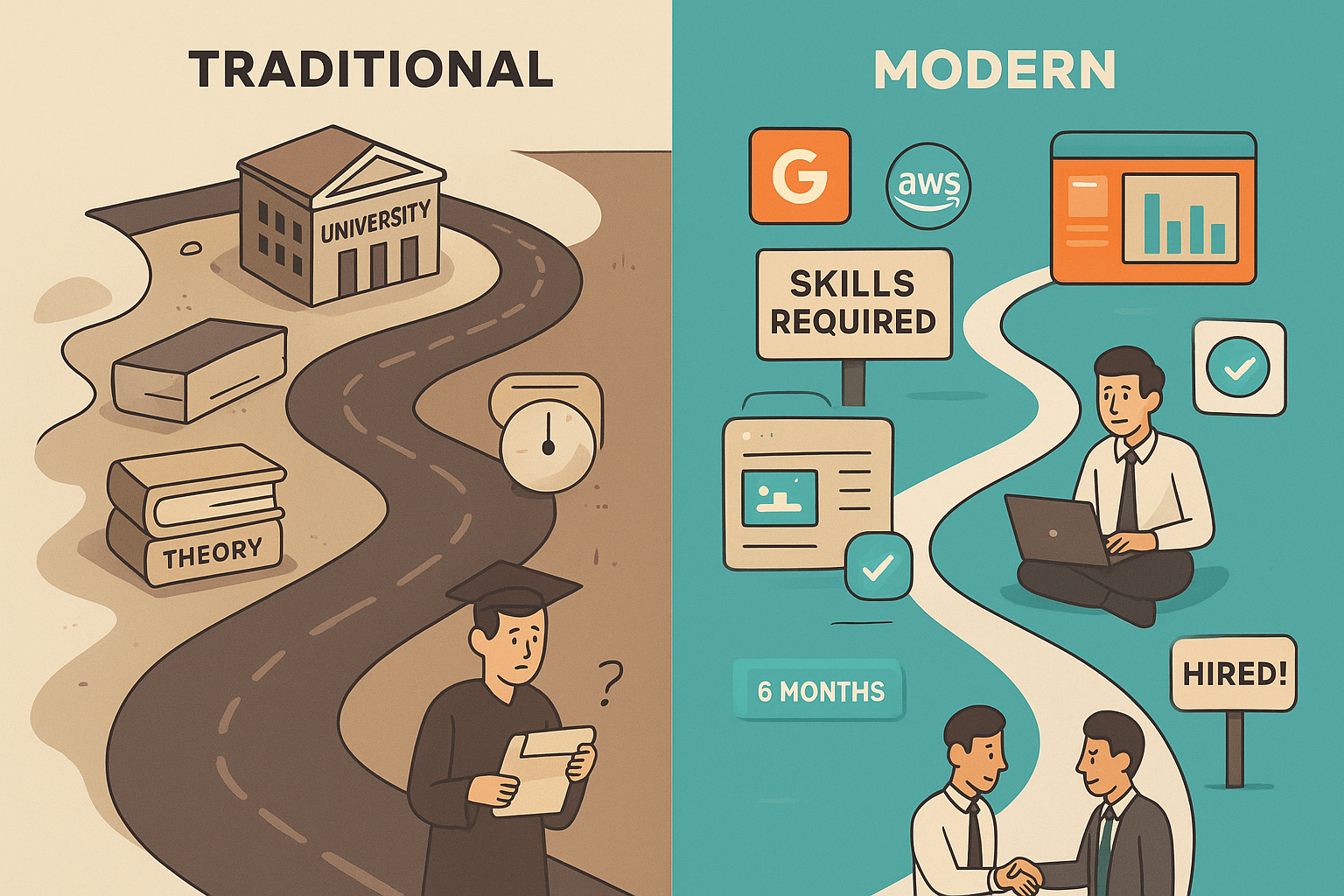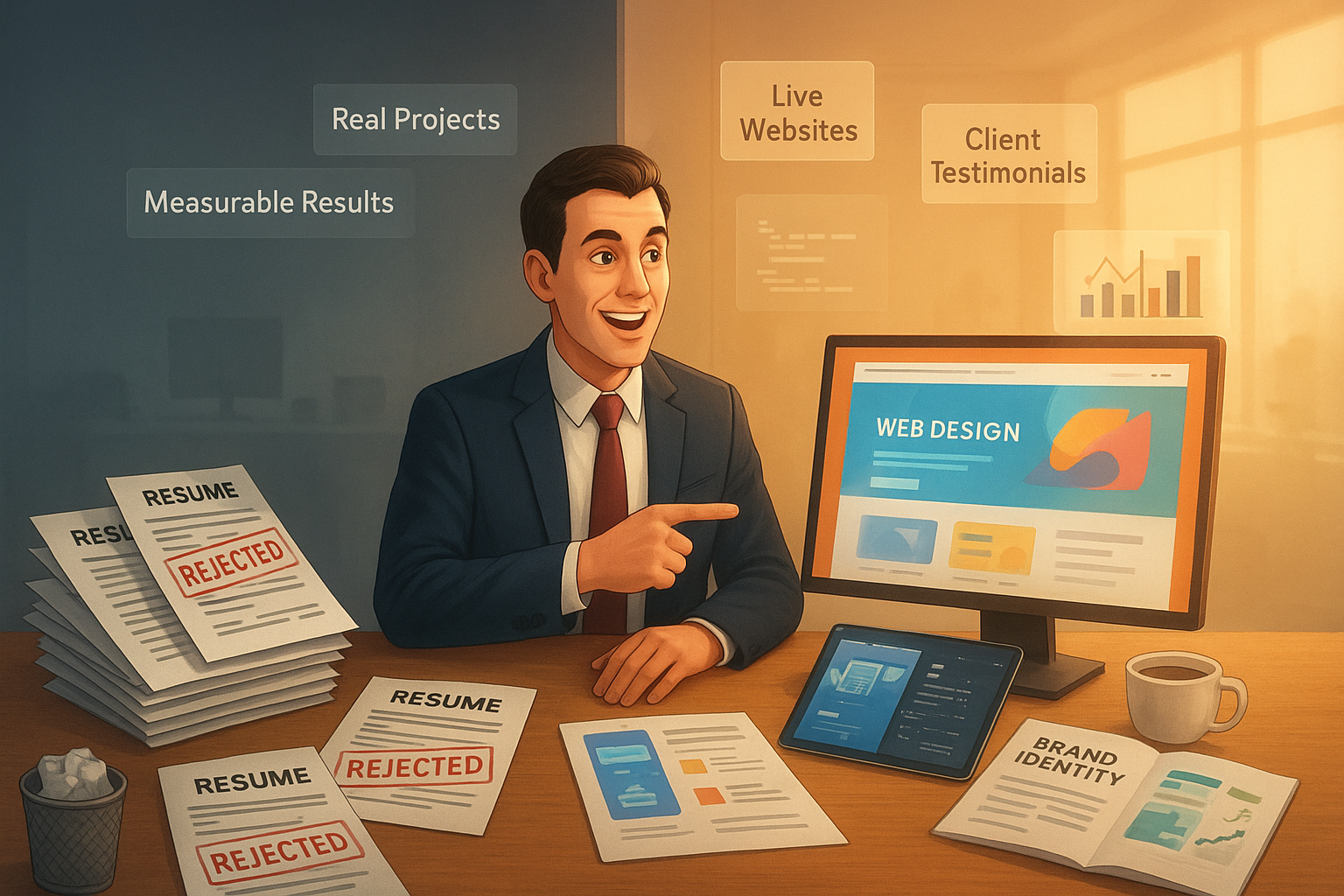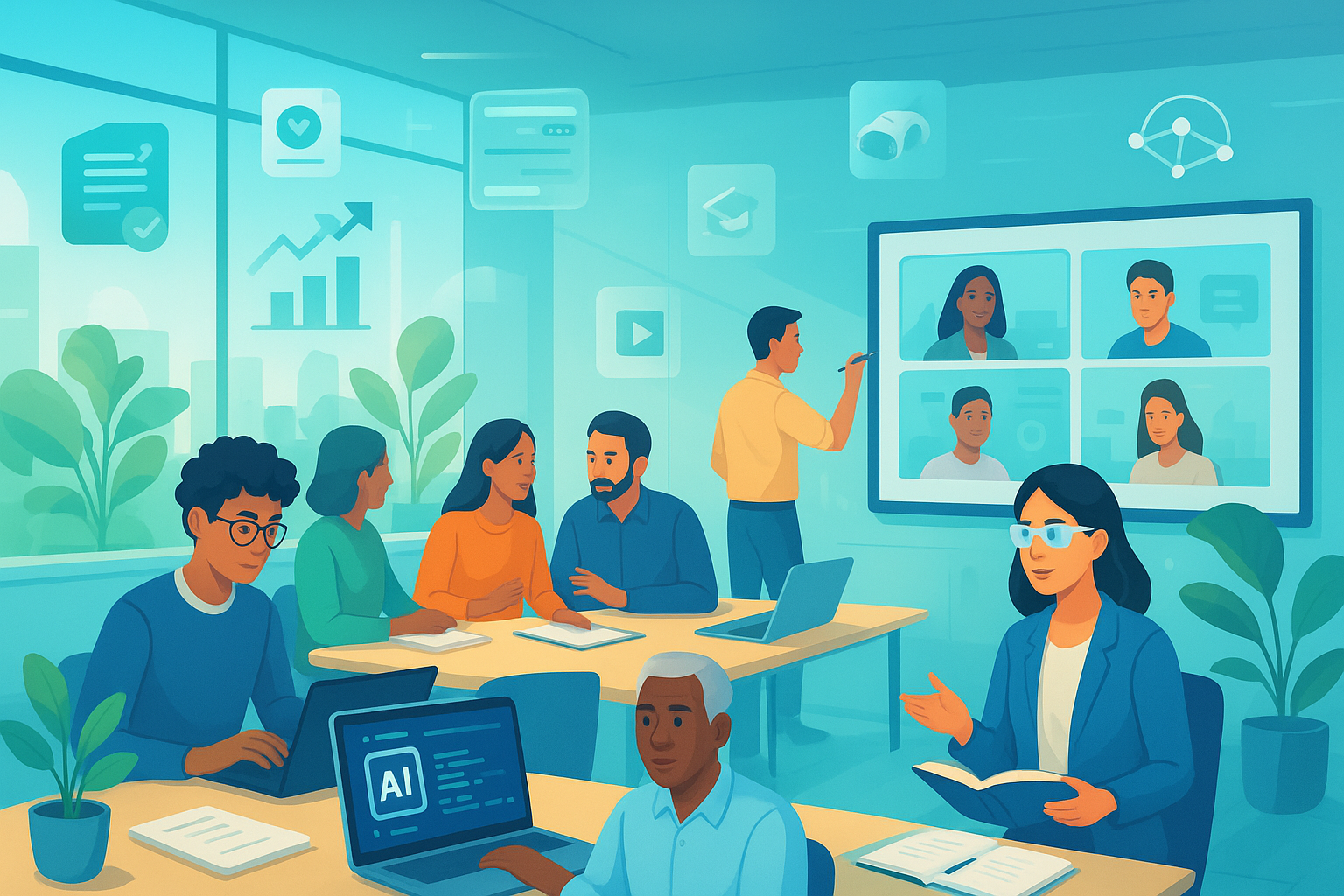Skills Trump Degrees: The New Rules of Getting Hired in 2025
Discover how successful professionals are landing dream jobs without degrees. Real stories, practical strategies, and the skills employers actually want right now.
Abu Bakar

Degrees vs Skills: Why the Future of Hiring Depends on What You Can Do
Let me tell you about Sarah. She's 24. Dropped out of college in her second year. Today? She's making $85,000 as a web developer at Microsoft.
Her secret wasn't connections or luck. It was simple. While her friends were pulling all-nighters for exams they'd forget in a week, Sarah was building things. Real websites. Actual apps. Code that people used. When Microsoft's hiring manager looked at her GitHub, he didn't care about her incomplete degree. He cared about the elegant JavaScript she'd written. The mobile app with 50,000 downloads. The e-commerce site that boosted a local business's sales by 300%.
"Can you start Monday?" he asked.
This isn't some feel-good story I made up. It's happening everywhere. The rules of hiring are changing fast. And if you're still playing by the old playbook, you're already behind.
The Great Degree Deception
Remember when your parents said you had to go to college? When HR departments wouldn't even look at your resume without "Bachelor's required" checked off?
Those days are dying. Fast. Here's the uncomfortable truth nobody talks about. That business degree your friend spent $120,000 on? It didn't teach him how to run Facebook ads. Analyze customer data. Build a sales funnel. You know, things businesses actually need. I've sat in hiring meetings where managers toss aside resumes from Ivy League graduates. Why? Because the guy with the community college certificate just demonstrated he could solve their exact problem in 20 minutes.
The math doesn't add up anymore. College costs have exploded 1,200% since 1980. Meanwhile, starting salaries? They've barely kept pace with inflation. Kids are graduating with massive debt and skills their employers don't want. It gets worse. By the time universities update their curriculum, the industry has moved on. They're teaching yesterday's solutions to tomorrow's workforce. That's not education. That's expensive nostalgia.
What Companies Really Want (Hint: It's Not Your GPA)
Walk into any growing company today. Ask the CEO what keeps them up at night. It's not finding people with degrees. It's finding people who can do things.
Real things. Practical things. Things that move the needle. Google figured this out years ago. So did Apple. IBM. Netflix. They stopped requiring degrees for tons of positions. Not because they lowered their standards. Because they raised them. They realized something obvious. The kid who built three successful apps has more practical knowledge than the computer science major who memorized algorithms but never shipped a single product.
Think about it. What's more valuable to a marketing team?
- Someone who studied the "4 P's of Marketing"
- Someone who ran successful Instagram campaigns and can show you the conversion numbers
The answer is obvious. Yet somehow we're still pretending theoretical knowledge beats practical skills.
Here's what employers actually need today: People who understand Google Analytics. Can build websites. Know how to analyze data in Excel. Understand social media advertising. Can manage projects from start to finish.
Notice what's missing from that list? A diploma.
 The Rise of Real Learning
The Rise of Real Learning
Something beautiful is happening in education. It's breaking free from the university monopoly.
Online certifications aren't just "nice to have" anymore. They're often better than traditional degrees. Why? Because they teach you what you'll actually use on Monday morning. Google's Data Analytics certificate takes six months. Costs $49/month. Graduates are getting hired at $75,000+ starting salaries. Compare that to a four-year statistics degree that costs $200,000 and teaches you to calculate standard deviations by hand.
Amazon Web Services certifications? They're hiring gold. I know network administrators making $150,000 with nothing but AWS certs and high school diplomas.
Coding bootcamps are even better. Take someone who's never written code. In 12 weeks, they're building full-stack applications. Most computer science majors graduate after four years and still can't build a working website.
The secret sauce? These programs teach you to build things, not just study them.
Here's the kicker. When new technology emerges, these programs adapt in months. Universities? They need committee meetings, department approvals, accreditation reviews. By the time they update their curriculum, the technology has evolved three generations.
Show, Don't Tell
Your portfolio is your new resume. Period.
I don't care if you went to Harvard or dropped out of high school. Show me what you've built. Prove you can solve problems. Make your work do the talking.
Meet Alex. Never went to art school. But Alex's design portfolio shows brand identities for 20 local businesses. A website redesign that doubled conversion rates. Social media campaigns that generated $2M in sales. When employers see this work, they don't ask about education. They ask about availability.
GitHub revolutionized hiring in tech. Your code is public. Your problem-solving approach is visible. Your collaboration skills are documented. Smart companies spend more time browsing GitHub than reading resumes. This works beyond tech too. Sales reps are showcasing their quota achievements. Project managers document completed projects. Customer service reps highlight process improvements that saved companies money.
The formula is simple: Problem + Solution + Results = Credibility.
Don't just show what you built. Tell the story. What problem were you solving? Why did you choose this approach? What challenges did you face? What were the results?
Make it easy for employers to see your value.
 AI Changes Everything
AI Changes Everything
Artificial intelligence isn't just changing how we work. It's making degree-based hiring look absolutely ridiculous.
Think about it. Universities approved their AI curricula three years ago. ChatGPT launched two years ago. Those courses are teaching students about AI tools that are already obsolete. Meanwhile, smart professionals are learning prompt engineering. Integrating AI into their workflows. Building AI-powered solutions. They're not waiting for permission from academia.
The most valuable skill today? Learning to work with AI, not against it. And that's not something you learn in a lecture hall. It's something you learn by doing.
I know marketers who became 10x more productive in six months by mastering AI writing tools. Developers who reduced their coding time by 60% using AI assistants. Designers creating stunning visuals with AI art generators. None of them learned these skills in college. They learned by experimenting. Practicing. Building.
The future belongs to people who can adapt quickly. Pick up new tools. Integrate emerging technologies into their work. These aren't academic skills. They're survival skills.
Why This Benefits Everyone
Skills-based hiring isn't just better for individual careers. It's better for everyone.
Companies get employees who can actually do the job from day one. No expensive training programs teaching basics. No disappointing discoveries that the "qualified" candidate can't perform simple tasks. Diversity explodes. When you remove degree requirements, you tap into talent pools that traditional hiring ignores. Single parents who couldn't afford college. Military veterans with practical experience. Immigrants whose foreign degrees aren't "recognized."
These people often outperform traditional hires. They're hungrier. More practical. Less entitled. They chose non-traditional paths because they had to prove themselves through work, not credentials. Geography stops mattering. A skilled developer in rural Kentucky can showcase abilities just as effectively as someone from Silicon Valley. Remote work + skills-based hiring = global talent access. Cost savings are massive. Skilled professionals without degrees often accept lower starting salaries while delivering superior value. Everyone wins.
The Challenges Are Real
Let's be honest. Skills-based hiring has problems.
Verification is tough. Degrees might be flawed, but they're standardized. Skills assessment can be subjective. How do you really know if someone can do what they claim?
Fake portfolios exist. Just like resume fraud, skills fraud is real. People buy fake certificates. Steal portfolio work. Exaggerate abilities.
Some jobs legitimately need formal education. Research positions. Medical roles. Legal work. Deep theoretical knowledge matters in certain contexts.
Standardization is messy. One company's "expert" rating means something different at another company. Without consistent standards, comparing candidates gets complicated.
But here's the thing. These challenges aren't reasons to abandon skills-based hiring. They're problems to solve.
What's Next?
The future isn't degrees vs. skills. It's degrees plus skills.
Smart students are combining traditional education with practical certifications. They graduate with theoretical knowledge and demonstrable abilities. That's powerful.
Universities are slowly adapting. Adding industry partnerships. Requiring portfolio projects. Integrating certification programs. The good ones will survive by becoming more practical. Lifelong learning is now mandatory. Your skills have expiration dates. What you know today might be worthless in five years. Continuous learning isn't optional anymore. Companies are hiring for learning ability, not just current skills. They want people who can adapt when requirements change. That mindset matters more than any specific capability. By 2030, most jobs will prioritize skills over degrees. Not because companies are being nice. Because it works better.
The Bottom Line
Sarah's story isn't unique anymore. It's becoming normal.
The hiring revolution rewards people who can deliver results, not just talk about theories. It creates opportunities for everyone willing to prove their worth through work.
Stop obsessing over credentials. Start building capabilities. Create things. Solve problems. Make your abilities visible.
Learn whatever way works for you. Online courses. Bootcamps. Self-teaching. Formal education. The method doesn't matter. The results do.
Build a portfolio that showcases real work. Document your problem-solving process. Show measurable outcomes. Make it easy for employers to see your value.
The future belongs to doers. People who build rather than just study. Who solve problems rather than just analyze them. Who create value rather than just consume information.
Your degree might get you an interview. But your skills get you the job.
And in tomorrow's economy, that's all that matters.

